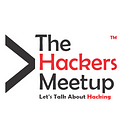IoT in Healthcare: A Game Changer
Emerging innovations in the healthcare industry have generated a lot of attention in recent years. Both the general public and business professionals are interested in innovations like augmented reality (AR), machine learning (ML), and artificial intelligence (AI)Some of these technologies can occasionally feel overhyped, leading to irrational expectations, even if many of them exhibit promise. But the Internet of Things (IoT) is a real game changer, with useful and significant applications that are changing the healthcare industry.
In addition, it was expected that the healthcare IoT market will reach a whopping valuation of $117 billion. These figures show to how extent to which the Internet of Things has developed and how much it can still do in the health care sector. IoT have a high chance for boosting the patient care, and it is high time for medical related professional to learn and try it. As the technology advances the need for the Iot will surlily increase, including another field also. Businesses are making significant investments in IoT app development because they see how it may improve patient outcomes and operational efficiency.
The State of IoT in Healthcare
According to predictions, there will be more than 161 million IoT devices in the healthcare industry by 2020.
Current Challenges in Healthcare
The healthcare industry is currently faced with a lot of severe issues. Resources are being stretched by increasing expenses and an aging patient the population, thereby restricting access to basic healthcare services. The scenario presents major difficulties for a large number of people who require immediate medical attention. But IoT technology have the power to totally change this setting and ultimately minimize the need for expensive hospitalizations by enabling proactive care and providing the quick diagnosis.
Benefits of IoT in Healthcare
1. Real-Time Monitoring:
Connected devices provide continuous real-time patient health monitoring, which in a disaster can save lives. Blood pressure and pulse rate are among the vital health data that these smart devices promptly share with doctors and nurses. This feature guarantees medical professionals, no matter who they are, can respond promptly.
2. Cost-Effectiveness:
Increase in the use of IoT devices can be more economical. It can reduce the expenses as well as improve the standard of health care to the patient by cutting down the unnecessary doctor visit.
3. Better Data Management:
IoT devices are capable of efficiently gathering vast amounts of health data that can be utilized for medical evaluation. These data which is analyzed can allow to take the decision in more improvised manner, and can help tackle the dangerous pandemic.
4. Tracking and Alerts:
Internet of things devices will help medical professionals respond quickly to emergencies by providing instant alerts. For example, if a patient’s vital signs show an emergency, alerts could improve patient care overall by triggering immediate action.
5. Remote Medical Assistance:
In distant areas with limited access to medical facilities, the use of contemporary IoT devices can greatly aid operations. There are a number of instances nowadays where a doctor can operate on a patient from a considerable distance.
Challenges of IoT in Healthcare
1. Data Security and Privacy:
One of the main problems with IoT in healthcare is protecting the patient privacy and data. Numerous IoT gadgets are at risk of hacking and attacks because they are violate to strict data regulations. Protecting confidential patient information is essential to maintain trust and compliance.
2. Integration Issues:
There are serious integration issues because different IoT devices are not all the same. Interoperability between devices may become even more challenging if numerous companies employ proprietary communication protocols. IoT may not be able to fully realize its potential in healthcare settings due to this fragmentation.
3. Data Overload:
Handling with the enormous amount of data generated by Internet of Things devices could be intimidating. Medical professionals may find it challenging to evaluate this data more effectively, which could complicate decision-making ability. There is a need to be efficient handling of data in place to avoid overload with the data.
4. Cost Considerations:
IoT application development might be costly initially, but in most cases, the benefits outweigh the drawbacks over time. Organizations must evaluate the initial costs against the potential savings and benefits in medical services that IoT may bring about.
Applications of IoT in Healthcare
- IoT technologies can help improve patient evaluation, assuring that even the most critically ill patients receive timely care.
- In healthcare facilities, real-time tracking technologies improve inventory management and patient flow.
- IoT devices can help enhance medication management by prompting patients to take their prescriptions and alerting doctors to any issues with attendance.
- IoT can monitor the state of medical equipment to ensuring that it is in better condition and available when needed.
Types of IoT Devices in Healthcare
- Hearables: Cutting-edge hearing aids with smartphone connectivity that provide consumers more personalization choices and better sound quality.
- Ingestible Sensors: These tiny, swallowable sensors convey information to healthcare providers about medication adherence and other health parameters.
- Moodables: Technology which improves mood through humble stimulation could be helpful for those with mental health conditions.
- Computer Vision Technology: Drones have computer vision features which help with navigation, particularly for the blind the visually impaired.
- Healthcare Charting: Internet of Things devices simplify the process of charting patients, saving doctors a great deal of time.
In Conclusion
The IoT have the potential to change the healthcare industry by changing the services work to enhance the patient care. If the health care sector adapts this technology advancement, then we should expect more efficiency, improved results. If you wish to embrace this transformative change, think about collaborating with skilled IoT developers who can assist in making your innovative ideas a reality.
Written By: Deepak S Rodge
